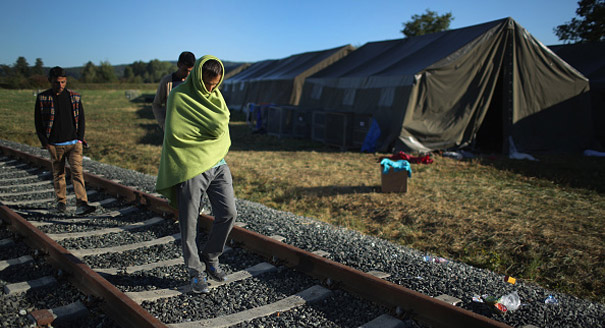When the Polish liberal daily newspaper Gazeta Wyborcza began a debate about why Poland should accept refugees fleeing the war in Syria, it sparked a furious response from its readers. Much of it was very negative.
The newspaper’s Internet site was besieged by readers who wrote that Muslims had no place in Poland, a predominantly Catholic country. Poland was for the Poles.
Others suggested that the refugees should be sent to Auschwitz, the former Nazi concentration camp where tens of thousands of Jews were sent to their death. The tone was so overwhelmingly racist and xenophobic that at one stage, Gazeta Wyborcza closed the site.
In recent years, Poland had projected a confident foreign policy and was emerging as a serious player in the European Union. Lack of leadership puts that reputation at stake.
Indeed, Poland is almost adopting a siege mentality with regard to the refugees, a mentality shared by most of the other countries in Central and Eastern Europe that oppose any plans by the European Commission for member states to take a fair share of those seeking safety.
But now, a group of intellectuals from across the region have had enough of their leaders’ stance. On September 18, 100 writers and historians, artists and journalists, theater directors and human rights activists penned an open letter that was published by the Stefan Batory Foundation, a Polish think tank.
Central and Eastern Europe, they wrote, “must not deny” help to the refugees. “Regrettably, there are many in our region who disagree.”
The letter is revealing for three reasons. First, there is a sense that Western Europeans still don’t understand Central and Eastern Europe and weren’t even convinced that the region’s former Communist countries could become part of the EU.
“After 1989,” the authors write, “there were doubts in the European Community regarding the capacity of Central European countries, from the Baltic States through Romania and Bulgaria, to integrate with the West, owing to our history, political traditions, and the state of our economies.” This feeling of being different, even of being second class, cannot be underestimated.
The second point the authors make is that “our part of Europe has not been the principal cause of the threats to the Union in this difficult decade.”
This is a disingenuous argument. The eleven countries in the region are members of the EU. Collectively, EU countries propped up authoritarian regimes in North Africa and the Middle East. Collectively, the EU had no strategy in dealing with the Arab Spring uprisings that started in 2010 or the upheaval that followed. To this day, the EU has still no long-term strategy for dealing with its Eastern and Southern neighborhoods. It’s worth recalling also that most Central European countries supported the U.S.-led invasion of Iraq in 2003.
Apportioning blame—or believing there is no need for Central and Eastern Europe to take any responsibility for the mess the EU is in at the moment—amounts to self-denial. What is at issue is the EU’s inability to anticipate and deal with crisis. All member states have contributed to that weakness.
The third aspect of the letter gets to the heart of Central and Eastern Europe’s perception of the refugees in such a way that it is really about the region’s identity.
The authors write that “unlike the former colonial and imperial powers that took in large numbers of immigrants after the Second World War, Central and Eastern European countries “have little experience of co-existing with people of different cultures, from far-off lands.” Nonetheless, they continue, “we have a duty to show compassion and to provide them with assistance. This is also our duty as Europeans.”
The authors get into their stride about what Europe stands for: solidarity and responsibility. “In refusing to help, we deny the idea of European solidarity. . . . We undermine the solidarity that other nations have shown towards our countries.”
But on a deeper level, the authors are opening a long-overdue debate about the identity of this special part of Europe. Before World War II, the countries of the region were home to a cacophony of languages. There was a richness of different cultures, of religions, of ethnicities. The Nazi and Soviet occupations destroyed much of that world, leaving, as the authors imply, a region closed off to the Other.
Things are slowly changing, as tens of thousands of young people from the region go to work or study in Western Europe. But the changes are not enough for populist politicians in Central and Eastern Europe to recall the past or defend Europe’s values. That is why the letter matters.








